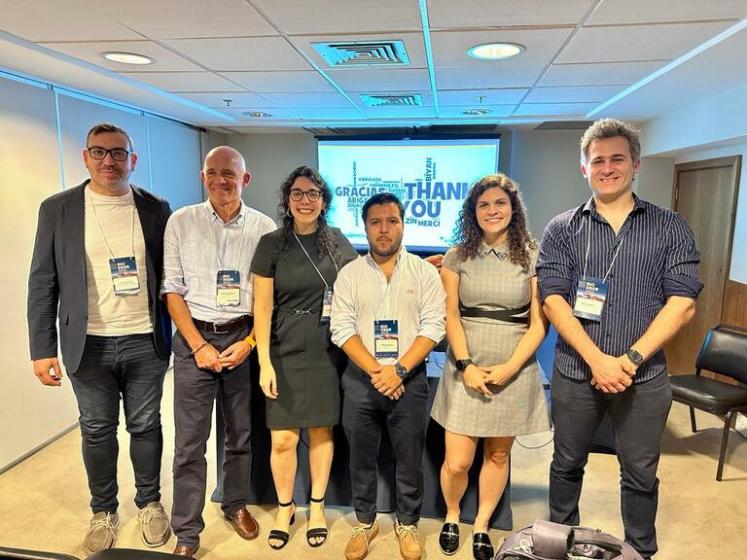From 20 to 22 July 2023, the Society for the Advancement of Socio-Economics (SASE) met for a three-day conference in Rio de Janeiro. There, the UNU-MERIT UNESCO Chair on Science, Technology and Innovation for Sustainable Development in Latin America organized a panel focused on the potential effects of the new techno-economic paradigm for Latin-American countries, entitled “The dual transition in LAC: a window of opportunity or an extra constraint for economic growth in natural resource-rich countries?” Bringing together a diverse audience of researchers and policymakers, the panel examined this topic in the context of global uncertainties and conflicts, taking into account the rich natural resources of the region. It covered the findings of nine papers, three of the authors of which obtained a travel award to attend SASE granted by the UNESCO Chair.
The first session examined Latin America’s opportunities to follow a low-carbon trajectory, focusing on the following key messages as presented by the speakers in italics:
- The lithium “triangle” of Latin American countries − Argentina, Bolivia and Chile – have some of the largest lithium reserves of the world, but are adopting widely different development strategies. (Martin Obaya, UNSAM)
- Knowledge transfer within the lithium sector needs regulation and North-South cooperation. (Victor DelBuono, Fundar, and colleagues)
A new machine learning approach that can help define “critical” minerals through an economic complexity algorithm allows countries to measure their competitiveness in critical minerals. When applied, the approach showed South Africa to be the most competitive country for critical minerals, namely platinum and lithium. (Mercedes Menéndez, Jorge Valverde and Carlo Pietrobelli, UNU-MERIT)
UNCTAD’s Frontier Technology Readiness Index, embedded in the agency’s Technology and Innovation Report 2023, should be used to take advantage of Latin America’s windows of opportunity. (Fabianna Bacil*, UNU-MERIT)
The second session highlighted the implications of the new techno-economic paradigm in Latin America, as studied from various theoretical and methodological perspectives, and focused on these main research developments:
- A new set of firm-level evidence on the obstacles to innovation that Colombian firms are facing (Juan Carlos Castillo, UNICAMP);
- A proposed study of the potential of biodiversity-based innovation to boost Latin America’s sustainable development (Amir Lebdioui*, Oxford);
- A structuralist model highlighting the complementarity of social, sustainability and innovation policies, which could serve as the basis for a “big push for sustainability” in Latin America (Camila Gramkov*, ECLAC);
- The different legal and institutional designs of three Brazilian innovation agencies, examined using a model of evidence from mission-oriented innovation policies during COVID-19 (Eduardo Spanó, UNICAMP); and
- An explanation of the green windows of opportunities theoretical framework to understand latecomers’ development (Roberta Rabellotti, Pavia University).
*Recipient of the UNESCO Chair on Science, Technology and Innovation for Sustainable Development for Latin America SASE conference prize



